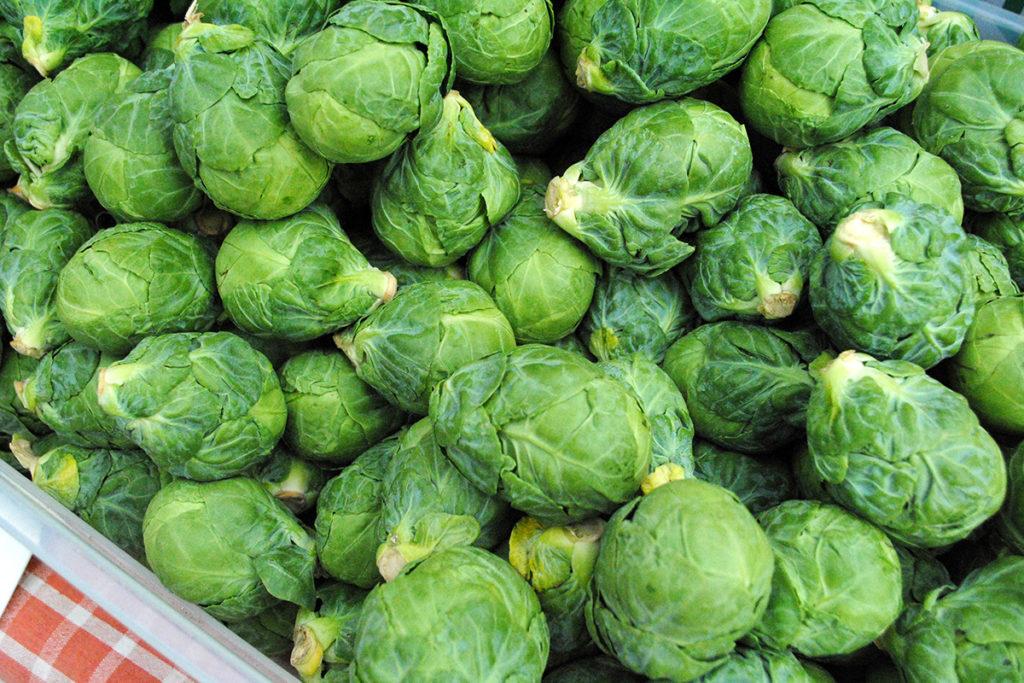Brussels sprouts

A member of the Brassica family, Brussels sprouts look like tiny cabbages, which makes sense, as they are believed to have been cultivated from the cabbage plant, most likely in the 18th century. Like many cruciferous vegetables, they are a good source of fiber, antioxidants, and vitamin C.
A hearty winter vegetable, Brussels sprouts are sweetest and tenderest after a hard frost. Look for young, small green sprouts that have tightly formed buds; avoid any yellowing, which means that the sprouts will be sulfurous, bitter, and tough. Buy sprouts fresh and use within a few days of purchasing. Sprouts sold on the stalk tend to keep for longer.
Brussels sprouts are delicious boiled, braised, or steamed. You can cut an X at the base of the sprout to allow for more even cooking. You can also quarter or slice the the buds and sauté the individual leaves. When at their sweetest, a little butter or olive oil, salt and pepper, and perhaps some seasonings, such as garlic, onions, or herbs, is all Brussels sprouts need, though they also make a great addition to stir-fries, noodles, and other dishes.
